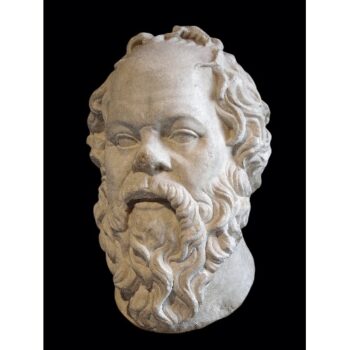The best known of the British empiricists are John Locke (1632-1704), Bishop George Berkeley (1685-1753), and David Hume (1711-1776). Locke developed a theory of understanding that became influential on the latter thinkers and that has largely become identified with British Empiricism. Nonetheless, Francis Bacon (1561-1626), whose birth proceeds Hume’s by 150 years, is extremely important for helping create the foundations for the later epistemologies.
Francis Bacon was a British Lord, statesman, lawyer, philosopher and generally what we today would call a public intellectual. He is often considered the father of experimental science. Bacon joined attacks on the Aristotelian, Scholastic traditions of his time with proposals for an inductive scientific method that he thought would advance knowledge. Like other thinkers in the scientific revolution of his time he assumes the rational law-like character of the universe and that observations of empirical phenomena can lead us to understand the laws underlying that phenomena.
Bacon’s most well-known books in philosophy are The Advancement of Learning (1605), the Novum Organan, the new organ or new tool (1620), and the Great Instauration, a book never published in its completed form. In the latter book Bacon began to present his outline of the structure of all forms of knowledge. Bacon is also known for having written many aphorism and for a utopian novel, published after his death, New Atlantis. It is a fable about an advanced scientific society.
In his philosophical works Bacon assailed his contemporary Scholastic philosophers for impeding the growth of knowledge and proposed his inductive method. In line with Bacon’s inductive method we should make observations of empirical phenomena, generate hypothesis on the basis of such observations, then test those hypothesis. If the hypotheses are not confirmed, they should be discarded, and we should generate alternative hypotheses. If they are confirmed, then we can make further observations on the basis of those confirmed views, generating a broader, still more encompassing hypothesis. In this way, through trial and error, we should be able to advance knowledge. Bacon, like other enlightenment thinkers, was attracted to the analogy of nature as a book. His inductive method, he thought, provided the language needed to read this book of nature. Employing it, he assumed that in short order we would know all of nature’s laws.
Bacon proposes that in order to advance knowledge we also need to guard against some basic natural errors in reasoning, which he titles idols. These impede our reasoning. There are four such idols:
- Idols of the tribe are due to human nature. They include the tendency to be deceived by our senses, to engage in wishful thinking and to rush to judgement.
- Idols of the cave vary among individuals and cultures. They include things like the prejudices we might have because of our culture or family backgrounds.
- Idols of the marketplace are obfuscations that result from the associations that humans have with one another — for example, the confusions in language use that result from this.
- Idols of the theatre are confusions resulting from grand ideological schemata, philosophical systems based on one key insight, for example, but then that are applied far beyond that, or philosophical religious systems. The ideas cloud judgment and can lead to dogmatism that prevents the growth of knowledge.
The right use of induction will impede these errors and secure the advancement of knowledge. Various philosophers of science have argued that Bacon’s method is used in the biological sciences and in the daily work of many sciences. His polemics in any case are certainly important for helping shift the intellectual culture away from the hermeneutic methods of the scholastics and for culturally advancing the experimental method in science.
However, Bacon has also been criticized, along with other empiricists who we will examine, for assuming that an unfiltered experience of nature is possible at all. Don’t we always make our observations with some theoretical framework already in place? This has been the criticism of many influenced by evolutionary epistemologists, who argue that we biologically already start out with certain mechanisms of mind for framing reality, but that beyond that, some actual theories are typically already existent that contextualize what we perceive. Various philosophers of science propose that the hypothetical deductive method employed by Newton much more accurately describes how science typically proceeds. In accord with that, science progresses as we develop a grande schemata for framing and understanding our observations.
In general Bacon helps to establish a culture more receptive to modern science and the experimental method. The advancement of learning in the modern era owes more than a little to this. There is, though, a dialectic to this enlightenment. The Baconian turn, along with the Cartesian one, play a role in disenchanting nature. While this has led, on the one hand, to our better understanding of nature, on the other, it has strengthened an attitude toward the natural world that has been shown to be quite destructive. The focus on the use of reason for instrumentalist control that Bacon advocated for nature became particularly concerning for nineteenth and twentieth century theorists when it was increasingly applied to human beings, who come to be seen as cogs in either corporate or statist machinery. In the late twentieth and twenty-first centuries, the dominance of the kind of instrumentalist control of the natural world proposed by Bacon has become even more concerning, as many view climate change, the massive wave of present animal extinctions, desertification and a host of present environmental problems as the ultimate result of it. These issues will be taken up later as we consider more explicitly the idea of the dialectic of the enlightenment and issues of ecological ethics.
Proceed to Locke
